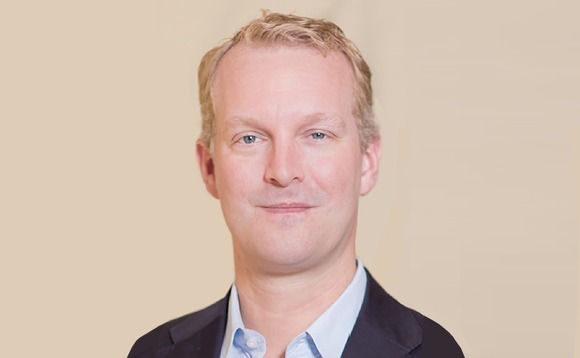
GP Profile: Opera Investment Partners doubles fund size with EUR 200m target for next vehicle

Opera Investment Partners, a European emerging managers investor, is raising its second fund with a fundraising target of EUR 200m, James Roebuck, a co-founder and managing partner, told Unquote.
The Switzerland-based sponsor, which invests alongside European emerging managers in small-cap markets with operational strategies, is expecting to hold a first close with existing LPs this quarter, he said. Existing LPs include foundations, pension funds and family offices from the US and Europe.
Opera, which seeks managers with buy-and-build, hands-on growth and special situation strategies, is fundraising in a "challenging" environment, he acknowledged, but the team has been building relationships steadily over the last three years, making conversations today "a little easier".
The EUR 200m fundraising target for Opera Small-Cap Value Fund II would double the size of its 2021 Fund I vintage, which raised EUR 110m.
The fund will continue its focus on backing blind pool funds and deal co-investments, with a particular focus on independent sponsors, he said. For blind pools, it will look at fund size ranging between EUR 50m-EUR 250m, while its co-investment strategy will look at targets with an EV of between EUR 10m-EUR 100m, he added.
A slight shift in the strategy is expected for its second fund, namely a 30% exposure to co-investments from the current 20% exposure in Fund I, he said, owing to the "especially strong" pipeline of transactions from independent sponsors.
Europe focus
Opera will seek opportunities across Western Europe, in particular the UK, Netherlands, Germany, and the Nordic region, which have the deepest markets for its strategy and contain the largest number of opportunities, he said.
GPs with specialisation, in particular, strategies focused on B2B services, software, healthcare, education, and mission critical industrials, will be the sponsor's focus, he added.
"Across Europe, trends toward digitisation and automation are creating interesting opportunities to invest in. There are growing software and tech-enabled businesses in need of partnership with hands-on managers as they seek to further scale and professionalise," he said.
The GP currently has a full pipeline of investments until the end of 2023, but it has some capacity to be opportunistic, he said. It is also "nurturing" a number of early leads that Opera expects to convert in 2024.
Many of Opera's opportunities are sourced in advance of traditional fundraising through its network of GPs, LPs, M&A intermediaries, entrepreneurs, and management teams which were built up since 2010, when Roebuck began investing alongside emerging managers.
"We're optimistic on the prospects for emerging managers going forward, regardless of macro developments. The scale of fundraising the last five years has led to many of the incumbent managers moving up market, leaving somewhat of a vacuum in the small-cap for new managers to repopulate," he said.
The smaller end of the European private equity market is inefficient and fragmented, giving rise to asymmetric-type opportunities with discounted entry valuations and attractive upside potential, he said.
Market slowdown
For now, though, the environment for emerging managers has "definitely become a more difficult environment in which to raise capital," he said. Further adding woes to new managers is the slowdown in realisations, as well as LPs who are monitoring their liquidity positions rather than pursuing new commitments, he added.
"Some new managers prefer to delay fundraising and are instead focusing on deal-by-deal investing to continue generating the best possible performance to add to their track records. When the fundraising market improves, they'll then be better positioned to raise blind pool capital," he said.
When evaluating emerging managers, the key for Opera is to understand how an emerging manager's team maintains their "entrepreneurial edge" whilst simultaneously becoming more institutional, he said.
It will also look closely at their fundraising strategy, he said, noting that emerging managers often have small teams and limited resources and can spend too long on the road, detracting from their time spent looking for the best deals.
And while the slowdown in the private equity market is also impacting M&A transactions, including the small-cap space, there continues to be activity driven in part by corporate carve-outs, which have seen increasing activity following a period of COVID-related disruption, he said.
Other factors driving M&A dealflow include founder-entrepreneurs who continue to transact with private equity. Small business owners face operational challenges on multiple levels, such as COVID disruption, trends to digitisation, macro complexity, and navigating the current turbulence with a strategic partner makes sense, he said.
[Editor's note: Subsequent to publication, the article has been amended to correctly identify the investor as Opera Investment Partners.]
Latest News
Stonehage Fleming raises USD 130m for largest fund to date, eyes 2024 programme
Sponsor acquired the public software group in July 2017 via the same-year vintage Partners Group Global Value 2017
Stonehage Fleming raises USD 130m for largest fund to date, eyes 2024 programme
Czech Republic-headquartered family office is targeting DACH and CEE region deals
Stonehage Fleming raises USD 130m for largest fund to date, eyes 2024 programme
Ex-Rocket Internet leader Bettina Curtze joins Swiss VC firm as partner and CFO
Stonehage Fleming raises USD 130m for largest fund to date, eyes 2024 programme
Estonia-registered VC could bolster LP base with fresh capital from funds-of-funds or pension funds








